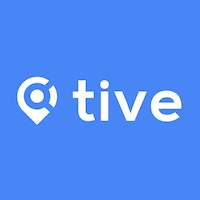ProMat Now and Then - What's Changed in Supply Chain in the Last 10 Years

May 22, 2017
March 24, 2025
x min read

I recently attended ProMat, the biennial tradeshow for the material handling and distribution industry. It’s quite a show - more than 35,000 people attend to see exhibits from almost 1,000 companies. This marked the 10 year anniversary of the first time I attended ProMat in 2007, and I thought I’d reflect on some of the changes I observed.

Robots, Robots, Robots
There were robots everywhere. Ten years ago there were several robot arm companies as well as a number of automated guided vehicles (AGV) but this year the number was 10X. Several sub themes:
- Compliant arms are in - “Compliant” arms are robot arms that won’t kill you if they hit you by mistake. This is in contrast to the big robot arms you see in automotive factories, that are surrounded by fences and other safety systems. Ten years ago there were a couple of compliant robot arms, I can only remember seeing Universal Robotics. This year every robot vendor had a compliant arm.
- Robot components everywhere - There were dozens if not a hundred vendors selling robot system components - everything from vision systems to end-effectors to control systems. Ten years ago there were perhaps 10.
- The spirit of Kiva Systems lives on - Ten years ago I visited ProMat as part of Kiva Systems. Kiva was purchased by Amazon Robotics several years ago and the product is no longer available on the market, but the impact of the company is quite visible. Several companies were demonstrating Kiva-like solutions, but even more striking was the fact that several companies who don’t even make robots use Kiva in their booth graphics. The photo below is of an artist’s rendering from a system integrator. Pretty cool.

Chinese characters are everywhere
Asian suppliers played an important role at ProMat 10 years ago, but the number of booths with Chinese writing grew by perhaps 10X. This includes component suppliers (gears, wheels) where the Chinese vendors now outnumber the non-Chinese vendors by my count, as well as large equipment providers, and even non-Chinese companies who had Chinese collateral to attract the many Chinese-speaking attendees.
Software providers shifting approaches
Ten years ago the major software providers (Red Prairie, Manhattan Associates, and so on) were the clear kings of the floor, with enormous booths that contained lounges, conference rooms and coffee bars. Their booths, while still present, were much smaller and less strategically located. Perhaps a change in those vendors’ approach to the show.
On the subject of software, it was less surprising to see some cloud-based offerings starting to appear. I spoke to several cloud-based warehouse management system (WMS) providers who said they are getting traction especially among newer e-commerce players. Given how entrenched a WMS can be, it was good to see some new entrants.
Conclusion: ProMat looks like the rest of the economy
Of the three themes I identified, the first two are obviously not limited to ProMat. We’re seeing more automation in all parts of life, and I’m not the first person to notice that China plays a more important role in the global economy than it did 10 years ago.
I suspect all three of these themes will continue to develop of the next decade at Promat, and I look forward to visiting again in 10 years to see what else has changed. The future of supply chain is close at hand, and here at Tive, we're excited to be a part of it.


